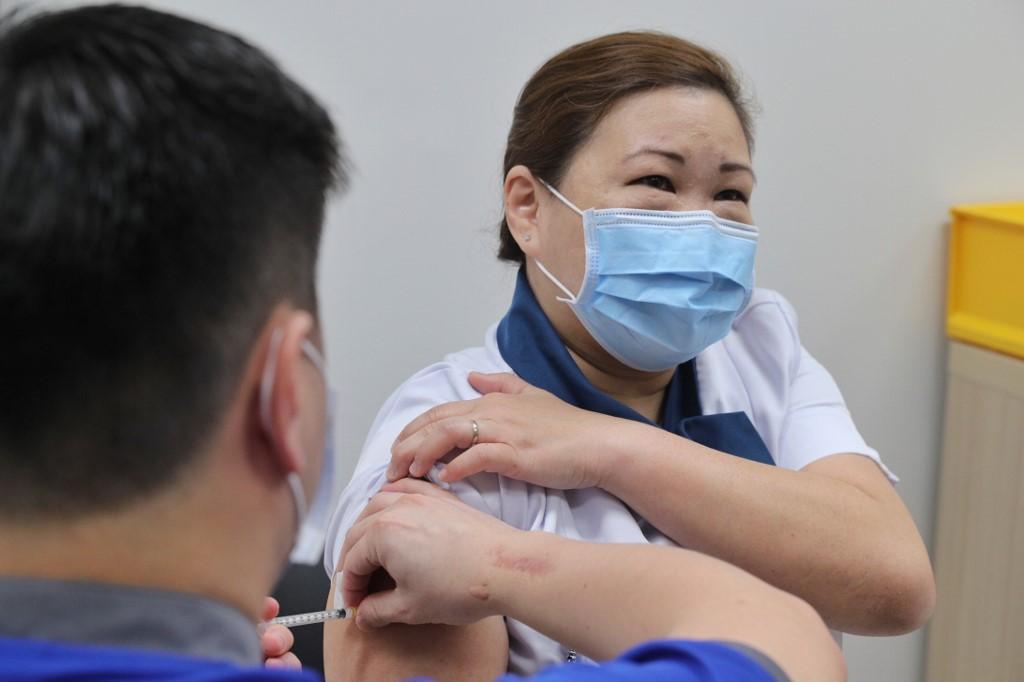Singapore rolling out Covid-19 inoculations, starting with healthcare workers
Singapore is the first country in Asia to obtain the Pfizer-BioNTech vaccine.
Singapore’s inoculation programme against Covid-19 kicked off today with a nurse receiving the first jab of the Pfizer-BioNTech vaccine at the city-state’s National Centre for Infectious Diseases.
“I feel grateful and thankful for being the first to be vaccinated,” Sarah Lim, 46, was quoted as saying by the Straits Times paper.
Lim is one of over 30 staff from the National Centre for Infectious Diseases who will be receiving their shots today. The second dose will be administered next month.
People aged 70 and above will get the vaccine starting in February. Other Singaporeans and long-term residents who are medically eligible for vaccination will be next in line, all on a free and voluntary basis.
The health ministry announced on Sunday that its expert committee’s recommendations on the Covid-19 vaccination strategy for Singapore, which are specific to the use of the Pfizer-BioNTech vaccine, have been accepted in full and the jab approved for individuals aged 16 years old and above.
The committee recommended that people at high risk of being infected, including healthcare and other front-line workers, should be given first priority.
Singapore is the first country in Asia to obtain the Pfizer-BioNTech vaccine, which is already being administered in countries including Britain, Canada and the US.
The republic received its first shipment of vaccines on Dec 21, with subsequent stocks expected to arrive in batches over several months.
The ministry is reminding Singaporeans that vaccination is not a silver bullet which will end the pandemic immediately, but it will work alongside testing and contact tracing and safe management measures, to keep community transmission low.
The ministry also noted that comprehensive vaccination coverage in the population will indirectly protect those who cannot be inoculated due to medical reasons.
In the longer term, wide-reaching inoculation of the population will at some point enable Singapore to reopen further both as a society and an economy and facilitate its recovery from the pandemic.
The expert committee has said that it will make further recommendations on other groups to be prioritised for vaccination, such as those who live or work in settings where there is potential for rapid transmission and large outbreaks, as more vaccines become available.
If there are no unforeseen disruptions to vaccine shipments, the inoculation programme is planned to be complete by the end of 2021.
Subscribe to our newsletter
To be updated with all the latest news and analyses daily.
